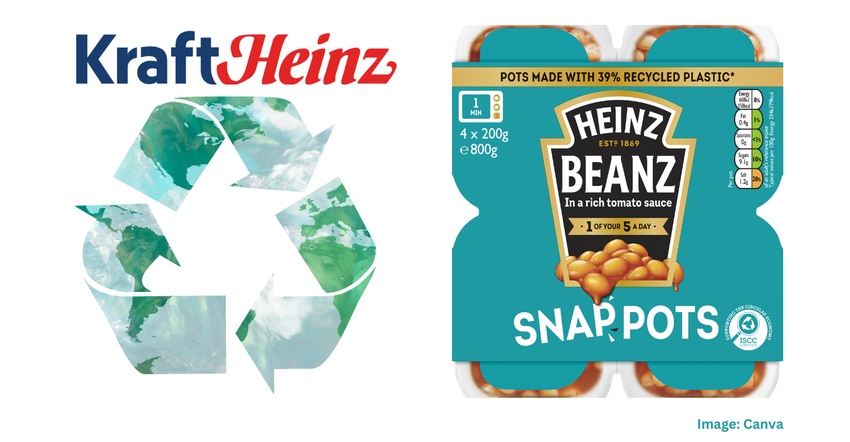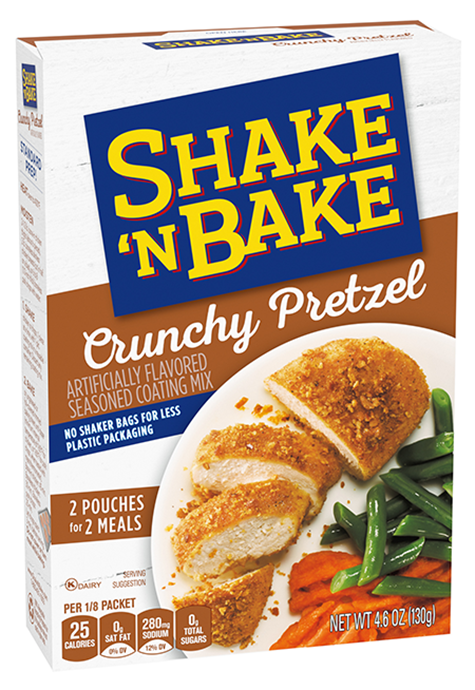Kraft Heinz Aims to Cut Virgin Plastics by 20%
Kraft Heinz's move to recycled content is expected to eliminate approximately 100 million pounds of virgin plastics from its packaging globally by 2030.

Kraft Heinz has an ambitious new global packaging sustainability goal. By 2030, the company aims to reduce the use of virgin plastic in its packaging by 20%, vs. a 2021 baseline — the equivalent of about 100 million pounds of virgin plastic.
The company is targeting all petrochemical-feedstock-derived plastic that has not been used previously. This builds on its intention to replace 15% of its polyethylene terephthalate (PET) rigid packaging in the United States with post-consumer recycled (PCR) content by 2025.
Previously, Kraft Heinz had announced a goal of making 100% of its packaging recyclable, reusable, or compostable packaging by 2025. It is also aiming for net-zero greenhouse gas emissions by 2050, with emissions halved by 2030.
“As we aim to meet our virgin-plastic commitment, we’re looking for new packaging solutions across our entire global portfolio where we can make the biggest impact,” Linda Roman, associate director of packaging environmental social governance (ESG) and technology at Kraft Heinz, tells us.
“When deciding what packages to focus on, we first see if there’s an opportunity to remove any unneeded plastic, then we look for opportunities where we can reduce plastic weight, add recycled content, or replace plastics with other types of materials, while ensuring we do not compromise the product quality and [do] meet consumer expectations,” she adds.
To boost the percentage of recycled content in its packaging, Kraft Heinz is leveraging its existing work with the US, Canada, and UK Plastic Pacts.
Replacing virgin plastic in packaging with recycled content.
The Kraft Real Mayo and Miracle Whip brands will transition from virgin PET to 100% recycled PET jars and squeeze bottles in the US starting in 2024; the goal is to eliminate about 14 million pounds of virgin PET.
Additionally, Kraft Heinz has transitioned from virgin PET to 30% recycled PET for most Heinz bottles in Brazil, Europe, and the United Kingdom.
For Heinz baked beans in the UK, the company created recyclable Heinz Beanz Snap Pots. Made from soft plastics, the pots are food-safe and contain 39% recycled plastic collected from consumers at Tesco stores.
Kraft Heinz is clearly rethinking its plastic packaging across product categories. “As we pursue our packaging goals, we’re transforming packaging across our entire portfolio, from Kraft Real Mayo and Miracle Whip in the US to Heinz in the UK,” Roman says.
|
“There’s no one size-fits-all across our vast portfolio, so we’re evaluating solutions through iterative development to find the best option while considering the packaging appearance, functionality, cost, how it can run on our manufacturing lines, and the environmental impact.”
A role for paper fiber-based packaging.
Shake ‘n Bake provides an illustration of Kraft Heinz’s success to date in reducing its dependence on plastics. In 2022, the company removed the plastic shaker bag (which appears to be made of polyethylene) from packaging for the entire Shake ‘n Bake product portfolio, eliminating 900,000 pounds of plastic waste annually.
Fiber-based materials are emerging as viable replacements for some plastics in Kraft Heinz’s packaging. In the UK, Heinz replaced plastic shrink wrap with paperboard multipack sleeves. The switch eliminated more than 1 million pounds of plastic in 2022.
In Canada in 2023, the company’s Nabob coffee brand replaced its nonrecyclable plastic coffee bags with recyclable canisters made of 80% paper fiber from renewable resources. Kraft Heinz estimates the switch will eliminate about 2.5 million plastic bags annually.
In addition, the company partnered with Pulpex in 2022 to create a paper-based, recyclable bottle for Heinz Tomato Ketchup. The bottle, a first in the sauce category, is made from 100% sustainably sourced wood pulp; a prototype is currently in test.
About the Author(s)
You May Also Like





